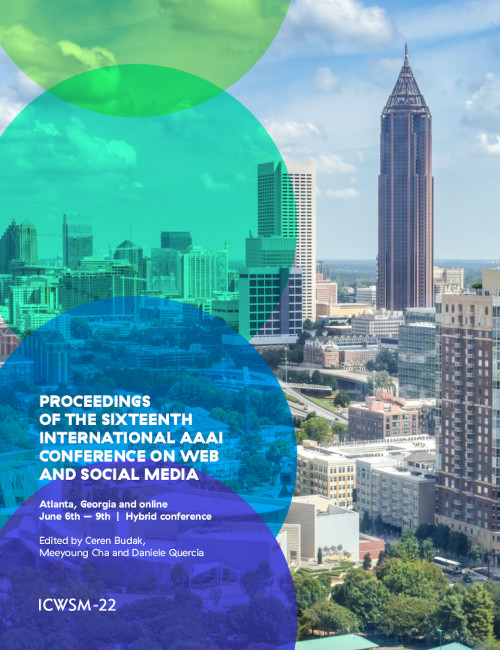Time after Time: Longitudinal Trends in Nostalgic Listening
DOI:
https://doi.org/10.1609/icwsm.v16i1.19294Keywords:
Studies of digital humanities (culture, history, arts) using social media, Psychological, personality-based and ethnographic studies of social mediaAbstract
Nostalgia was once considered a medical disease but is now understood as a beneficial, identity-affirming emotion. Yet what induces feelings of nostalgia is not fully understood. Are nostalgic feelings prompted by changes in a person’s life, and do certain events prompt nostalgia across whole populations? In this paper, we analyze when people listen to nostalgic music. We use data from a large, cross-national survey to train a classifier to detect which tracks are nostalgic for individual listeners. We then analyze a comprehensive dataset of listening histories from a 5.5 year period. Despite it being a complex concept, we were able to predict nostalgic listening with relatively high precision. We compare our results across listeners from four countries to understand how consistent behavior toward nostalgic music is. We find people listen to nostalgic music more often as they age. We also find people tend to listen to nostalgic music consistently in their day-to-day lives. We do not find evidence that listening to personally nostalgic music increases in response to particular traditions, seasons, or events. However, we do find traditions and events can affect how much “back catalog” music people listen to. These trends are consistent across the national contexts we studied. Our results advance prior findings about nostalgia and the life course, and demonstrate a novel methodological consideration for studies of nostalgic listening.Downloads
Published
2022-05-31
How to Cite
Hanson, C., Anderton, J., Way, S. F., Anderson, I., Wolf, S., & Wang, A. (2022). Time after Time: Longitudinal Trends in Nostalgic Listening. Proceedings of the International AAAI Conference on Web and Social Media, 16(1), 311-322. https://doi.org/10.1609/icwsm.v16i1.19294
Issue
Section
Full Papers

